Meet Robert (and his testosterone levels)
Coming up: stressing, sleeping, some humbling confessions, 2 helpful supplements, facts you’ll care about, facts you probably won’t, and some surprising ways I’ve boosted my testosterone.
If you’ve been reading our blogs and posts for a while, you might be wondering who I am.
(or, at least, you might be wondering why you’d want to read my opinions).
Elaine (my wife and business partner!) has already introduced herself here.
So: now, it’s my turn.
I’m Robert.
I’m an entrepreneur, dad of two, and co-founder of Sentro Labs. Me and Elaine lived in Australia for ten years, and had two businesses there. But back in 2021, we returned home to Ireland. For many reasons, including getting older, it felt like the right thing to do.
But, the main thing to know about me is:
I’m a very normal mid-40s bloke.
… and if you’re reading this, there’s a decent chance you’re pretty similar to me.
Me, my body, and a sharp drop in testosterone
Unfun fact: from around age 30, male testosterone levels begin to drop by around 2% every year.
I know this for two reasons:
- It’s, well, a scientific fact
- Because I’ve personally felt it
From my 30s onwards, I could feel my testosterone dropping.
Different men notice it in different ways (and at different speeds!), but here’s what I felt:
● Taking a long time to recover from workouts, and watching my muscles get smaller
● Poor sleep: struggling to fall asleep, waking up a lot, and rarely feeling well-rested
● Bad gym performance, low energy, and never feeling ready to attack the gym
● Always feeling sluggish and unmotivated; in life and during exercise
● Increased stress—and feeling that stress affect me more than before
● Feeling overwhelmed, and always struggling to unwind and relax
● Noticing my sex drive decrease
In short, it was clear: my shrinking testosterone was impacting EVERY aspect of my life—from physical performance, to relationships, to overall well-being.
You see: testosterone is connected to MUCH more than us blokes realise.
So… if you're feeling any of the above symptoms (and you’re 30+), diminishing testosterone could be why. And bad news: as we age more, it’s only gonna get worse.
This is one of the reasons me and Elaine started engineering our own range of supplements. But more on that later—because I learned to manage my testosterone in many ways.
For years, I did much reading and research around:
● Exercise
● Sleep & stress
● Diet & drinking
● Sunlight exposure
● … and supplementation
And I made changes to all 5:
Exercise
I focused on:
● Doing fewer exercises and exercise sessions, but with increased intensity. At our age, we need to prioritise recovery. So, I focused on stripping away unnecessary parts of my workouts, and giving my body more time to recover and heal.
● Reducing the amount of endurance work I was doing: endurance training (in excess), can actually decrease testosterone.
● Increasing my HIIT (high-intensity interval training): this type of exercise takes less time, and has been proven to increase testosterone.
● Knowing that sometimes less is more. Do I really need endless bicep curls, when exercises like chinups and cable rows can hit my biceps pretty hard?
💪 As an example, here’s one of my favorite workouts. In it, I’ve explained more on the above 4 points.
Sleep & stress
For my stress, I made two big changes:
- Making a better effort to wind down in the evenings
- Prioritising sleep
I improved my sleep in many ways. Now, I:
● Get 6-8 hours per night
● Sleep in a cool dark room
● Turn off screens 1 hour before bed
● Stop drinking caffeine around 8 hours before bed
● Wake and sleep at the same time each day (well, ish)
And to help with both, I started taking Equilibrium. Featuring L-Theanine, Lemon Balm and Magnesium (and 4 more ingredients!), it’s specifically designed to battle high stress and poor sleep. Basically, it’s a big dose of daily calm.
Diet & drinking
I adapted a few different things:
● Increased my protein (to around 2 grams per kilogram of my bodyweight per day)
● Reduced my caffeine intake (which has in turn helped my stress and sleep)
● Focused on eating ‘real’ foods (and eating less processed stuff)
● Upped my intake of testosterone-boosting foods
● Reduced my alcohol intake
Sunlight exposure
This was much more important than I expected:
Vitamin D levels can play a big role in helping and/or harming testosterone (both directly and indirectly).
But, bad news: because Ireland doesn't get much sun, we really don’t get enough Vitamin D here (and that probably includes you!). That affects us in many ways—and can negatively affect testosterone.
That’s why Vitamin D is one of the key ingredients in our testosterone-boosting supplement Performance. Which brings us to…
Supplementation
Changing and doing all the above; it helped a lot.
But, two problems:
a) These changes didn’t help enough
b) Sticking to all the above is tricky and time-consuming
… which is why Elaine and I engineered both Equilibrium and Performance.
While Equilibrium improved my sleep and reduced my stress (and therefore indirectly boosted my testosterone), Performance directly affected my testosterone levels.
Why?
Well, it’s a mixture of 7 carefully-selected ingredients: Vitamin D, Maca Root, Zinc, Selenium, Fenugreek, L-Arginine, and Carnitine. Before, I took all these supplements separately—but now I take them all in one pill, and all in the right doses.
It’s boosted my energy, mood, sex drive, and muscle recovery—and I now feel much more alive and energetic.
Me and my testosterone: final thoughts
So, now you know me.
(or, I suppose, you know how I’ve managed to boost my once-flagging testosterone).
To sum up, I:
● Am much more careful in managing sleep and stress
● Have changed many parts of my diet
● Have gotten smarter about exercise
● Now take the right supplements
● Get out in the sun more often
Now, I feel fresher, fitter, and more present for the people I care about. I’m more focused and energetic, I sleep much better, and my sex drive is back. Not bad! 💪
Cheers for reading,
Rob.

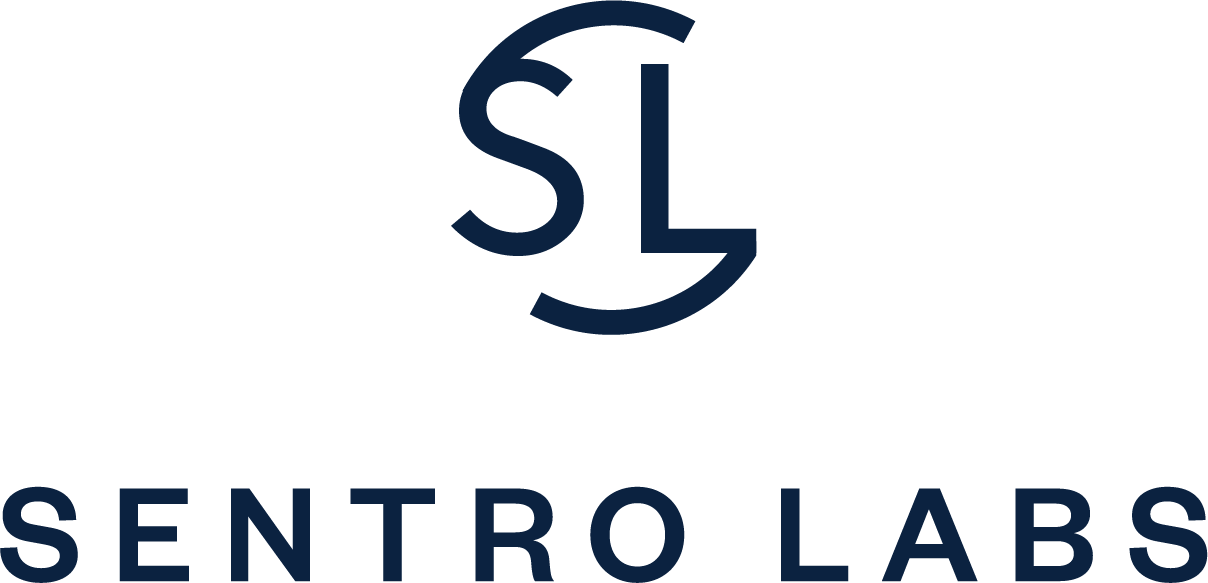

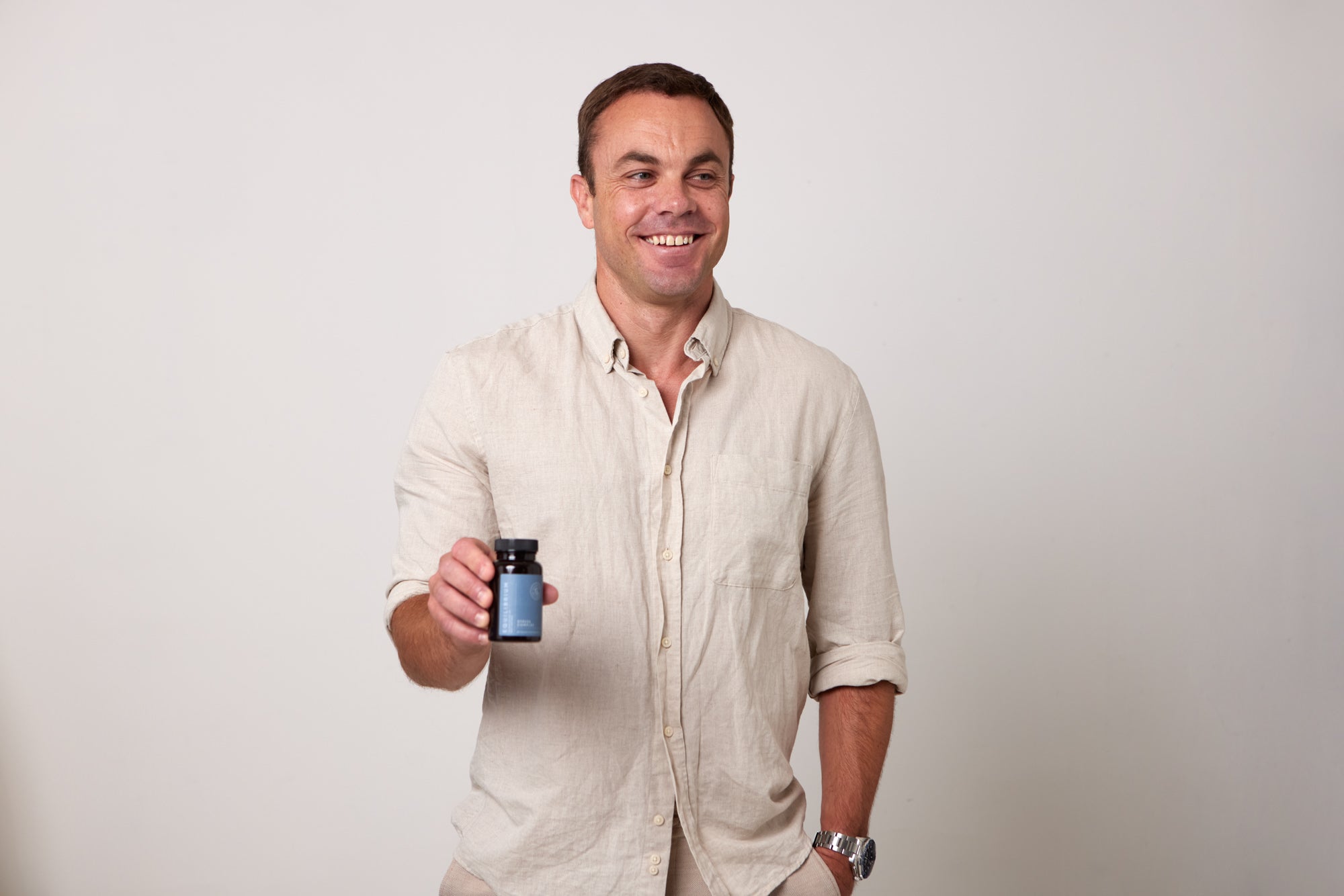
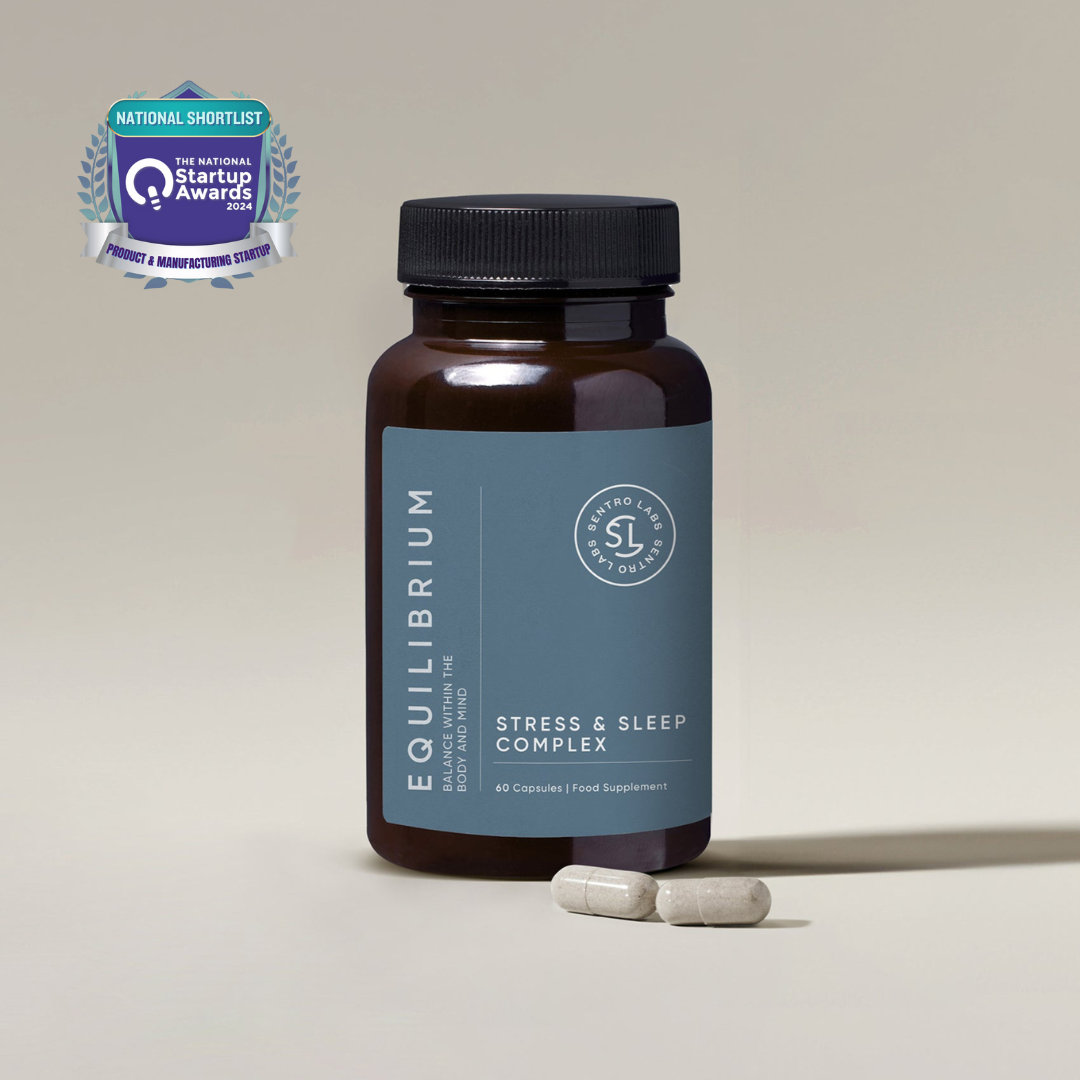


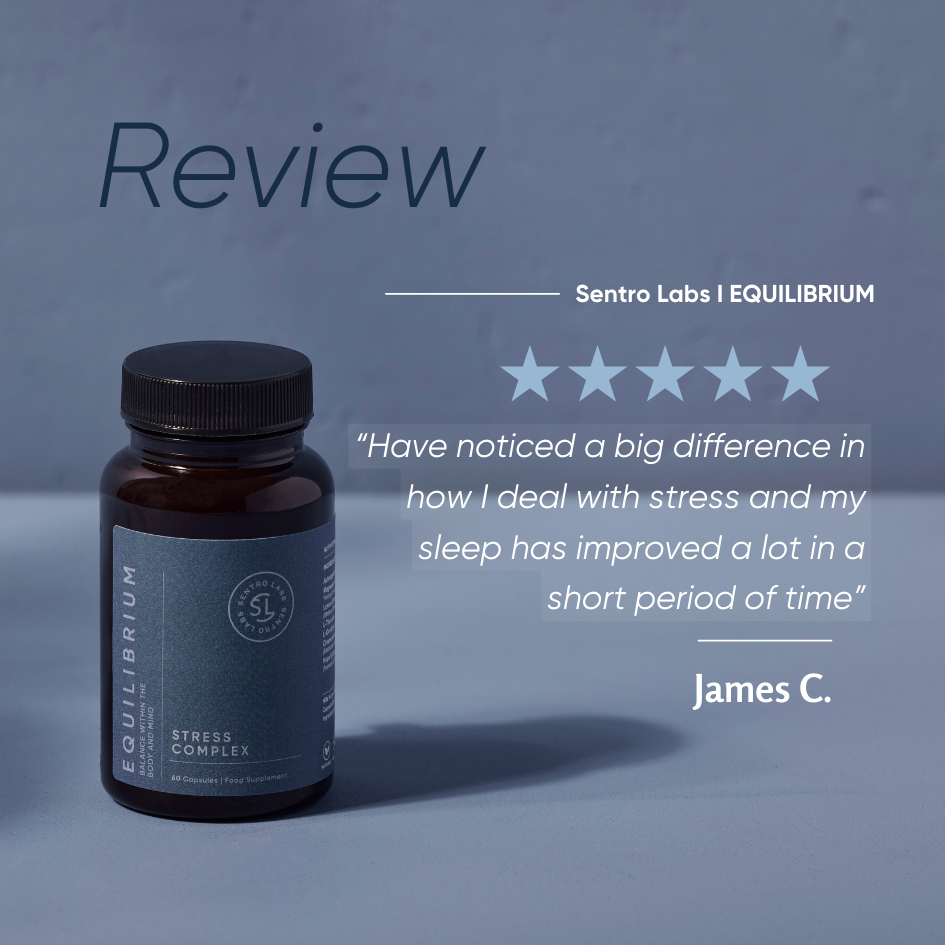
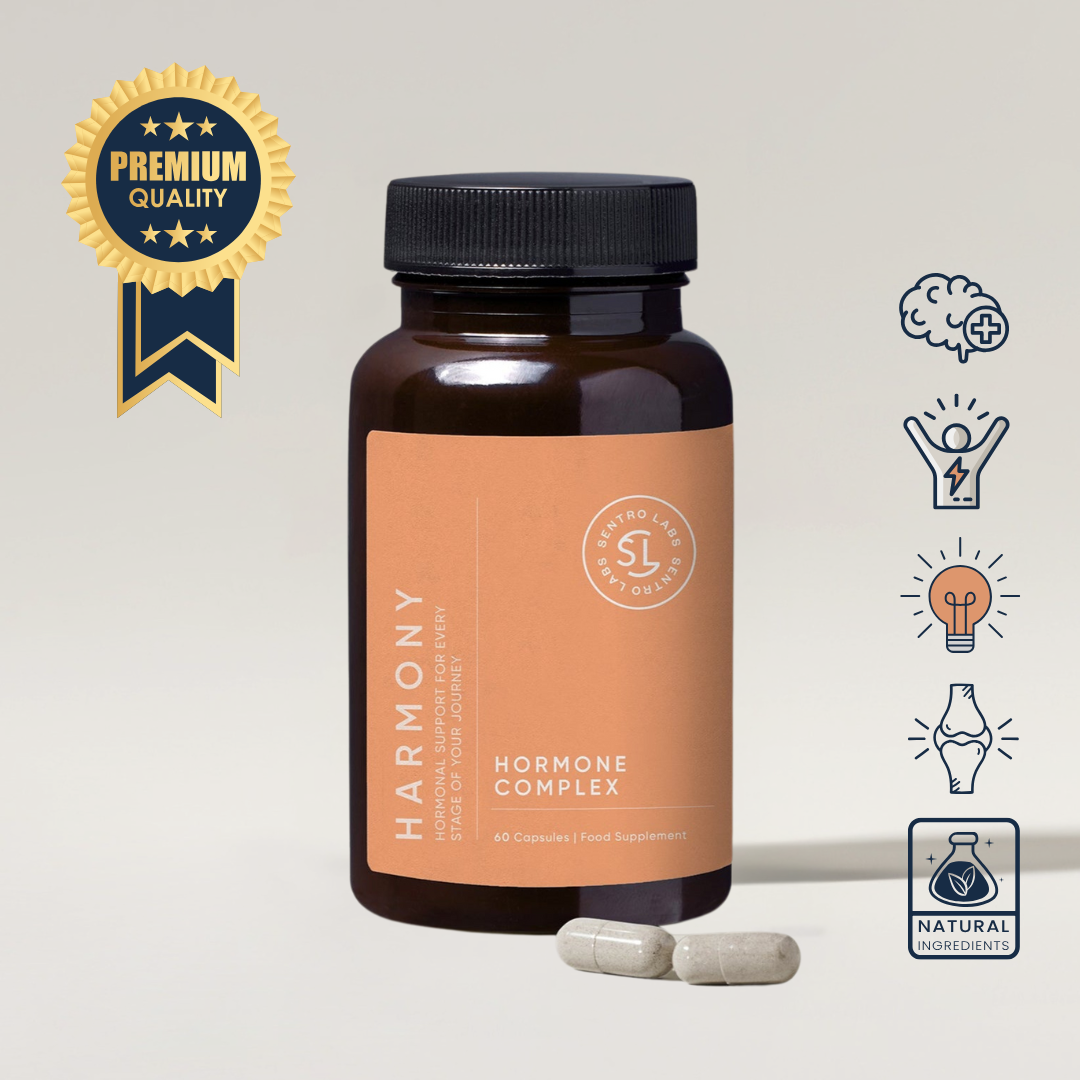
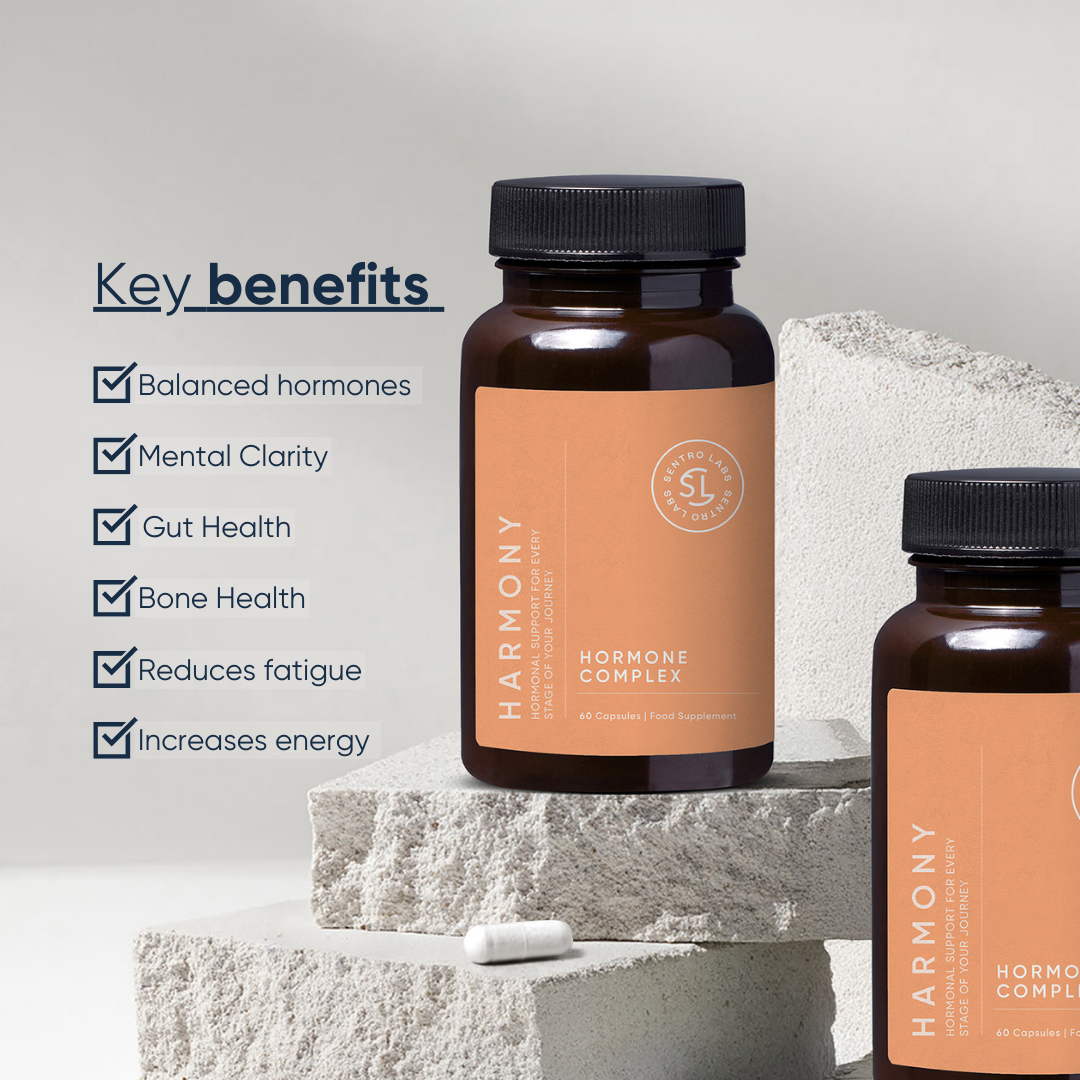
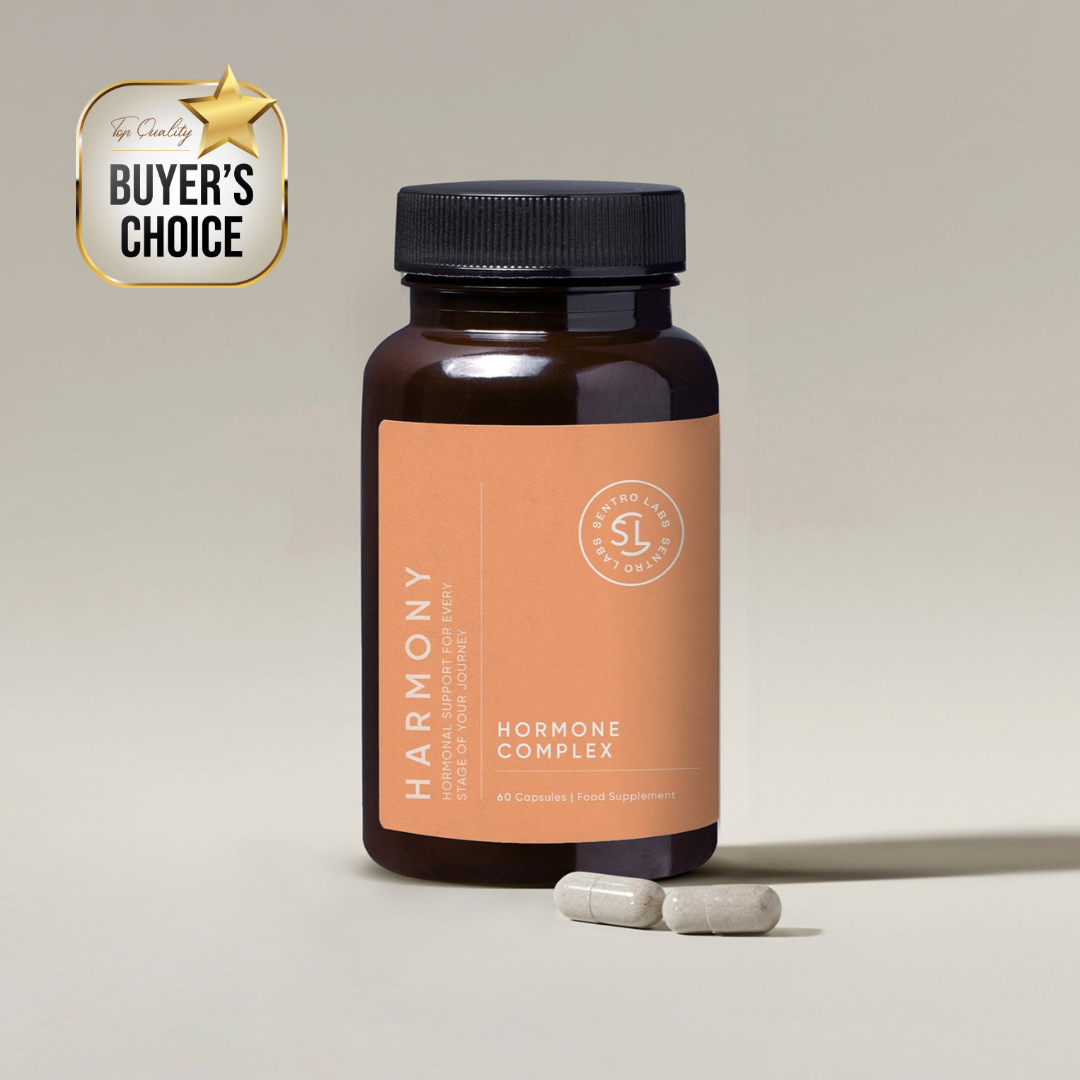
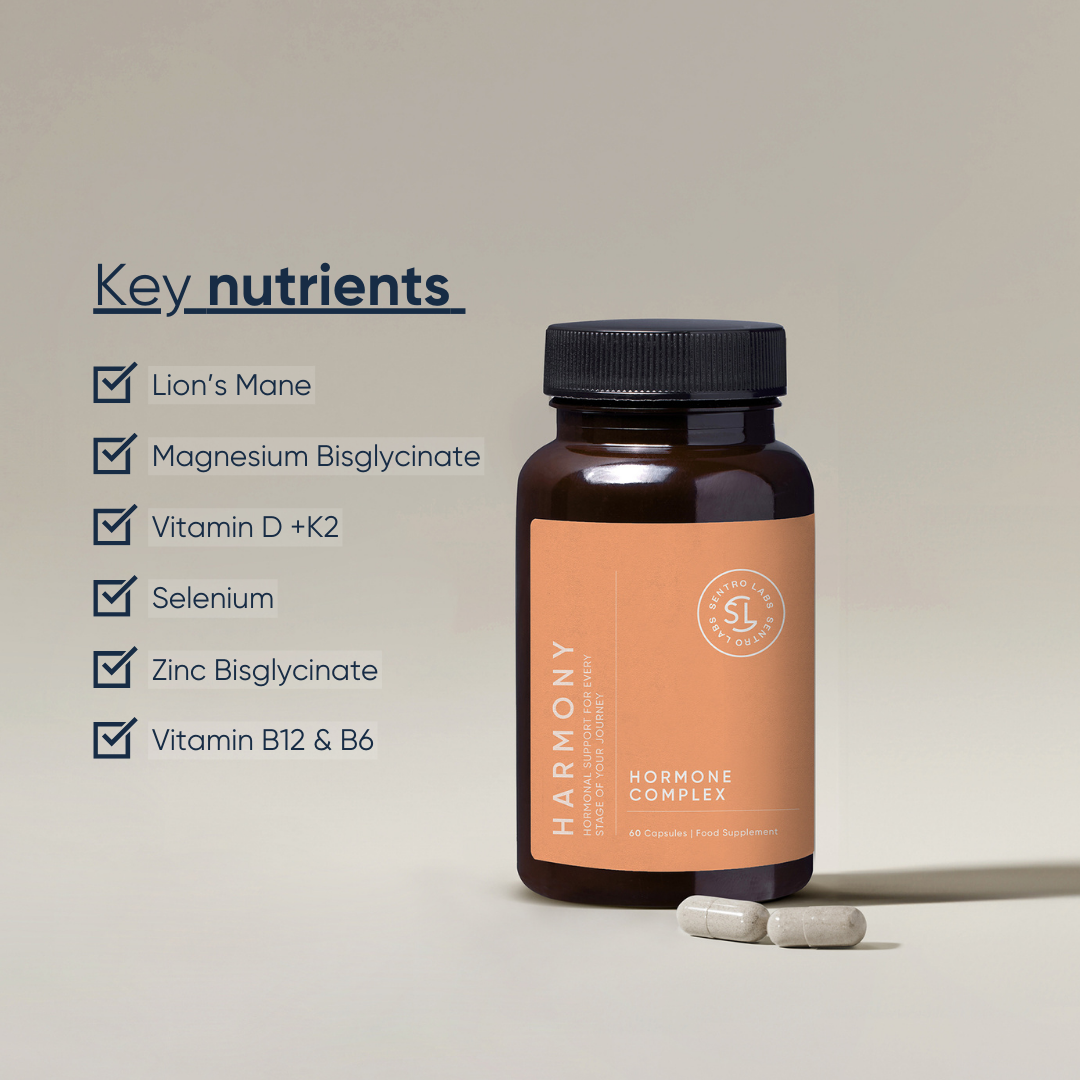
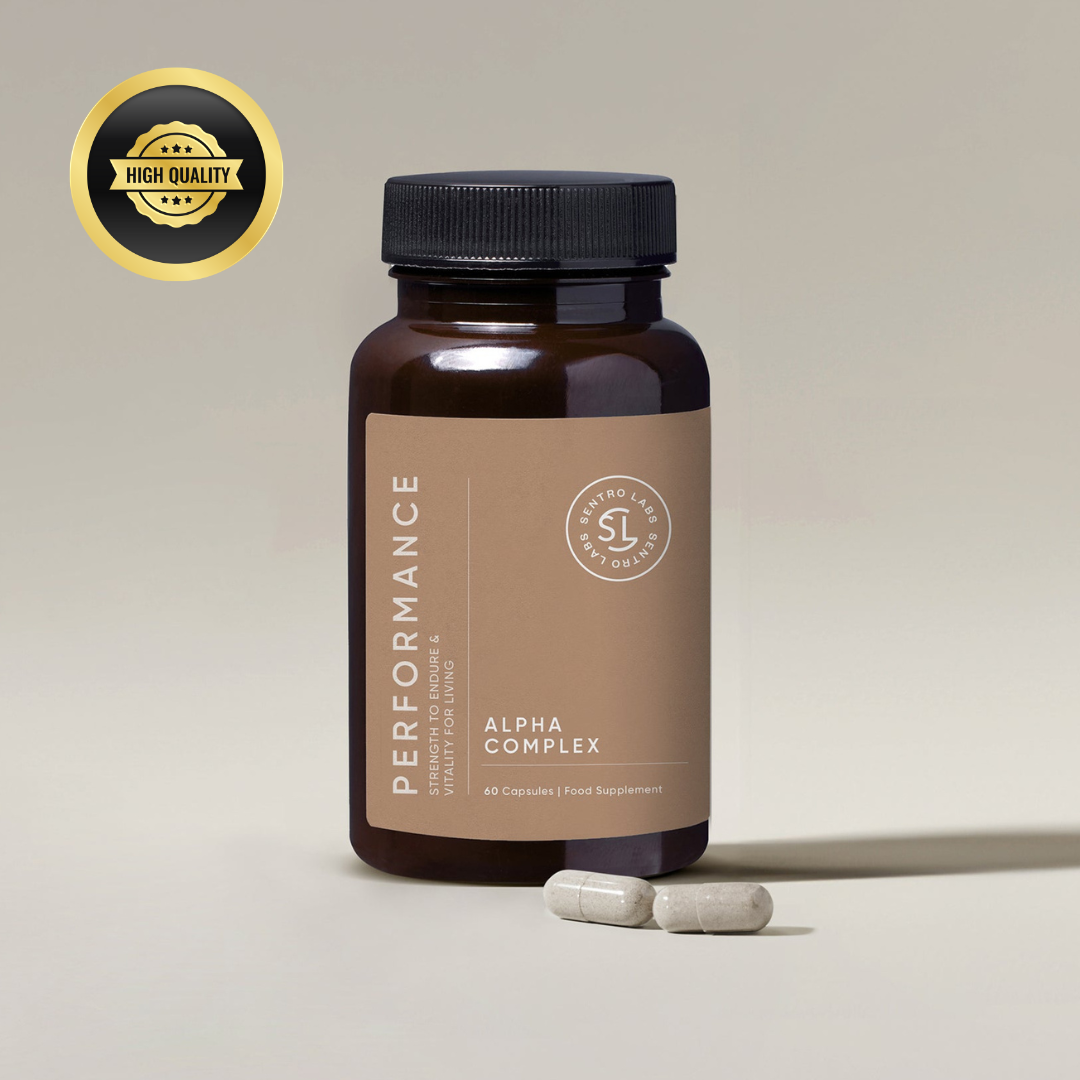
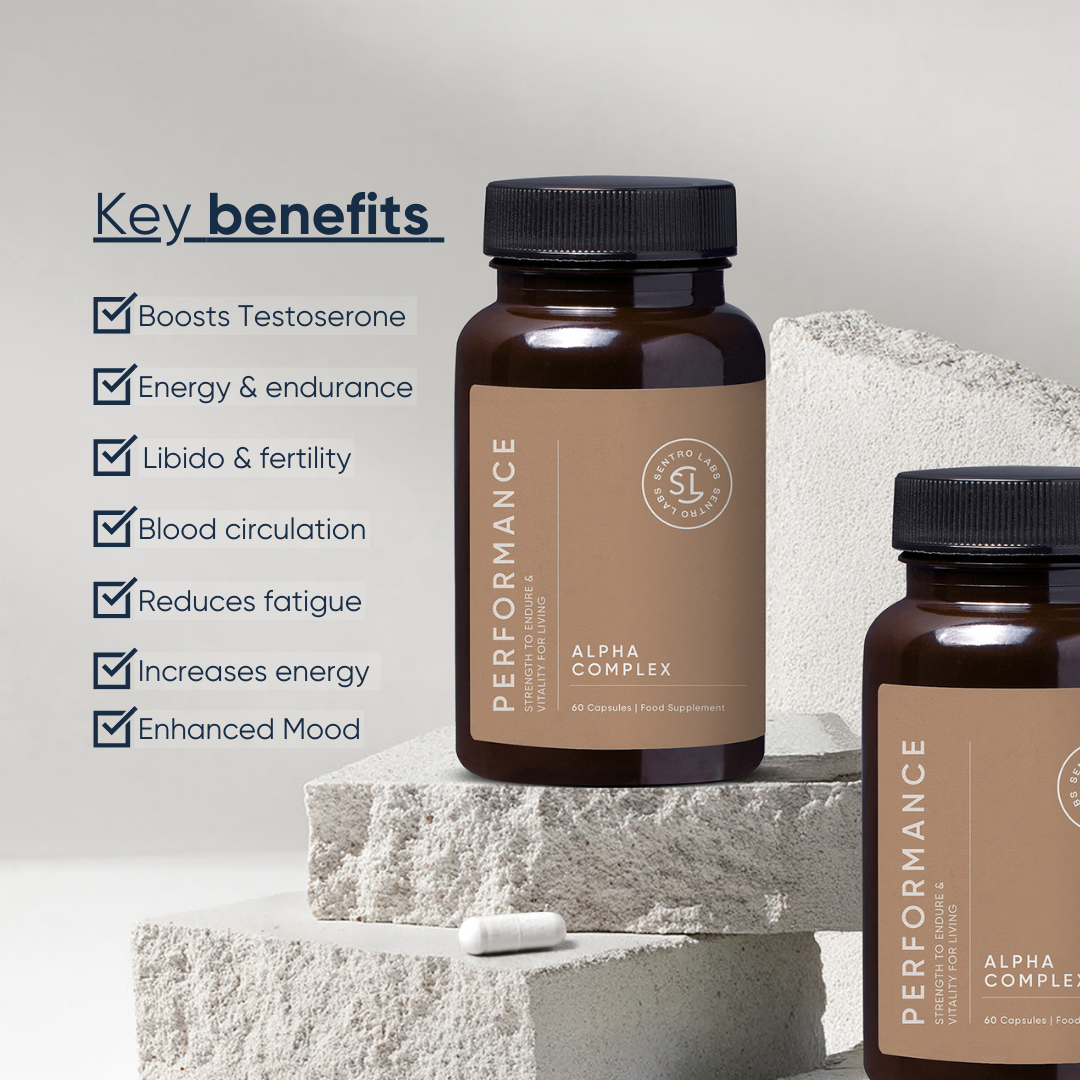
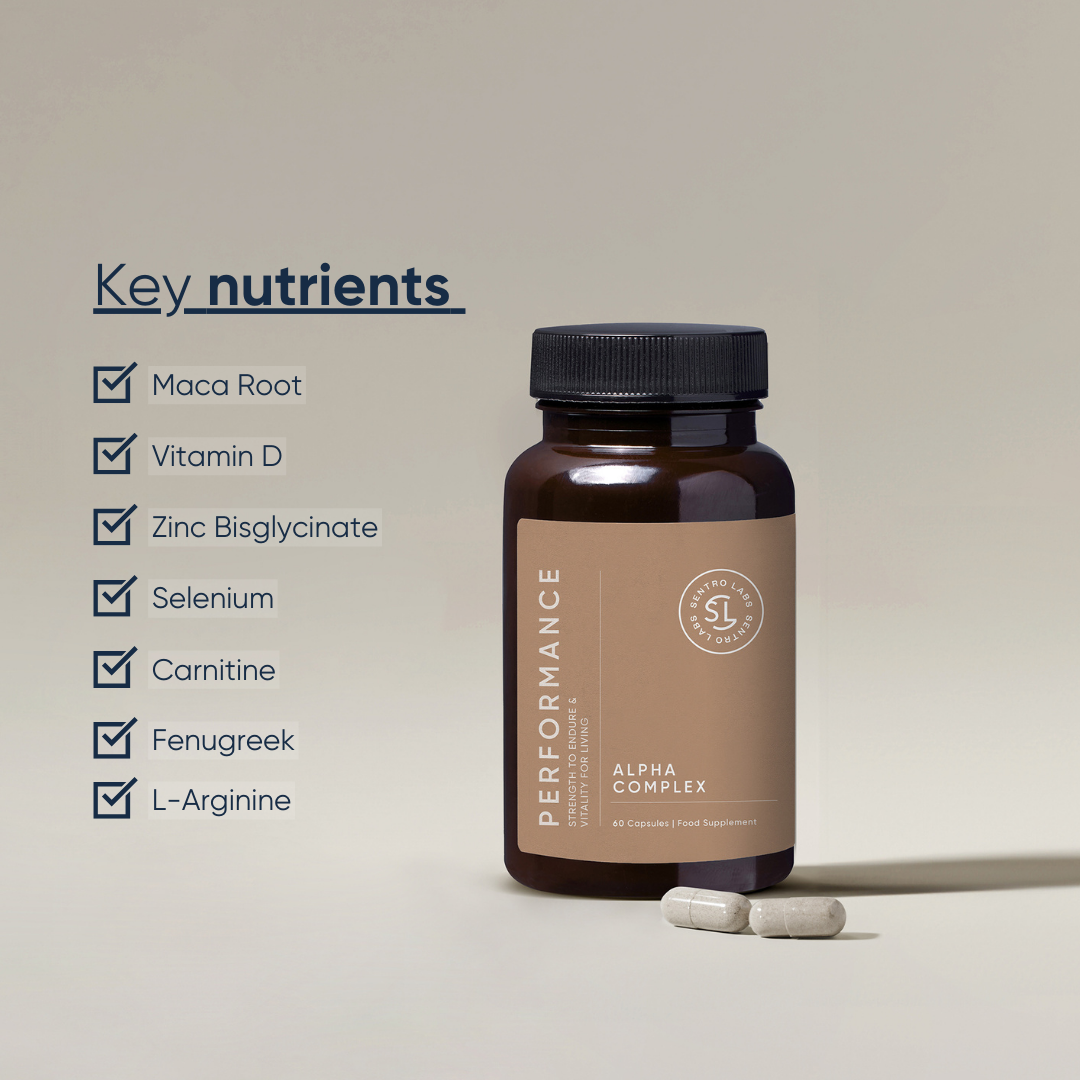
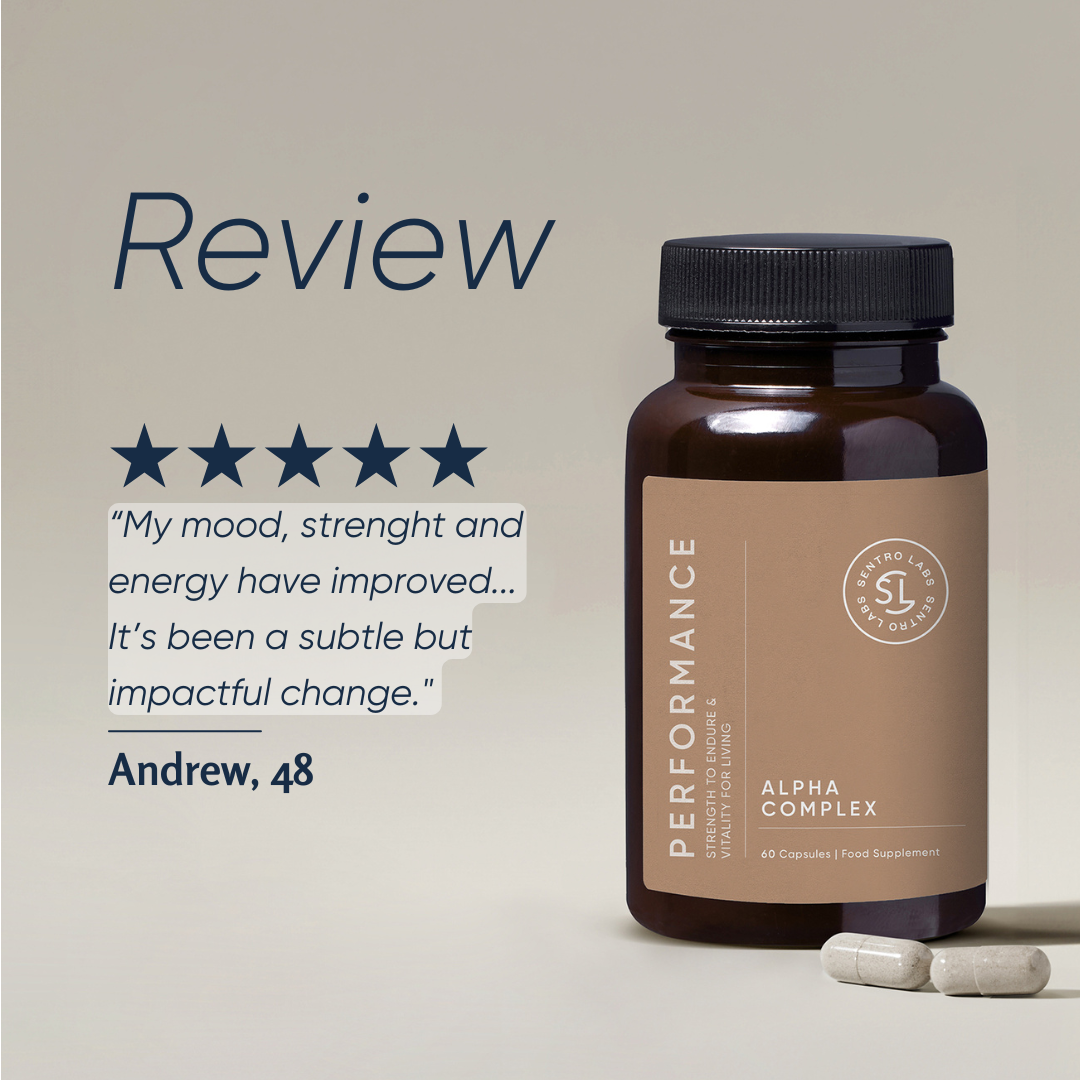
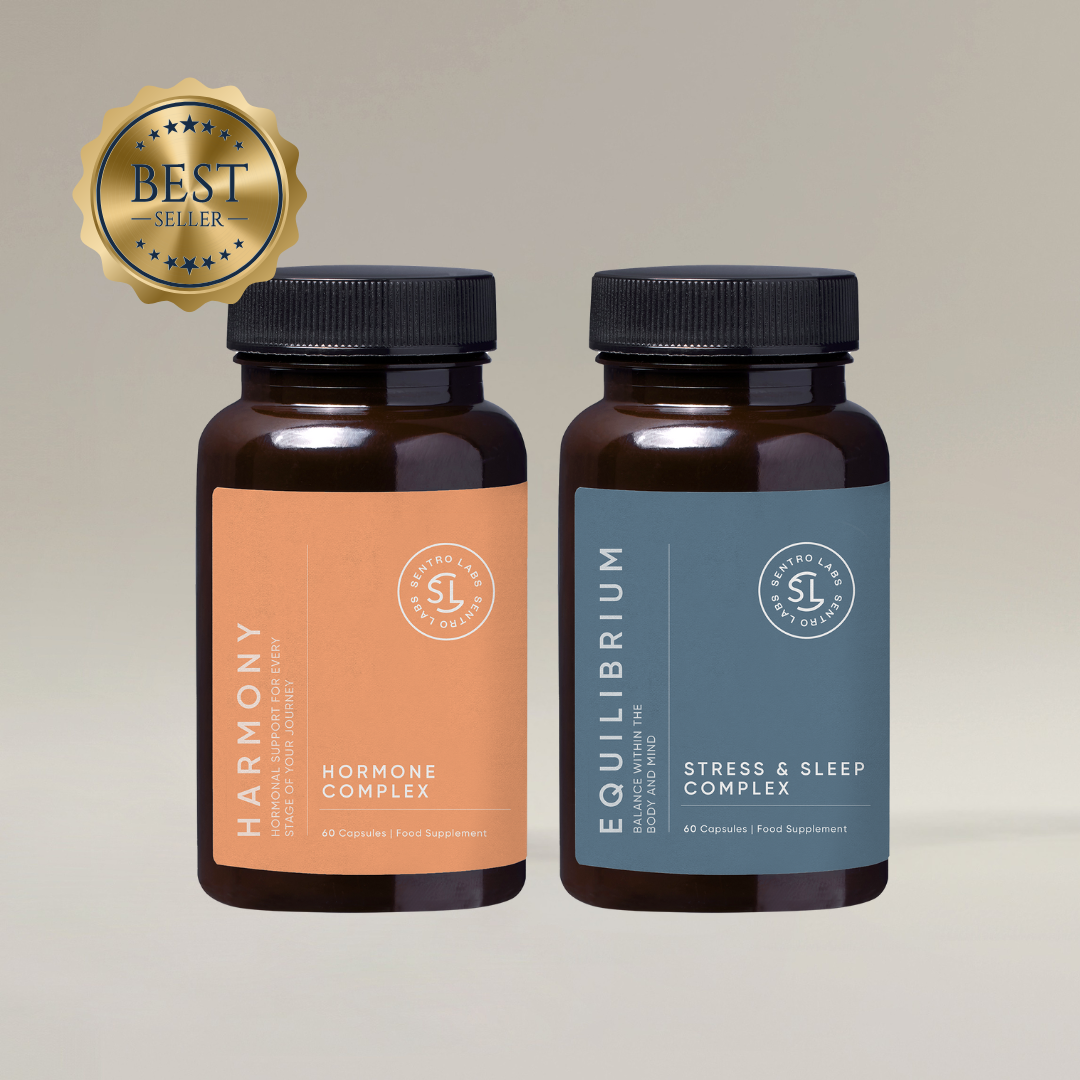
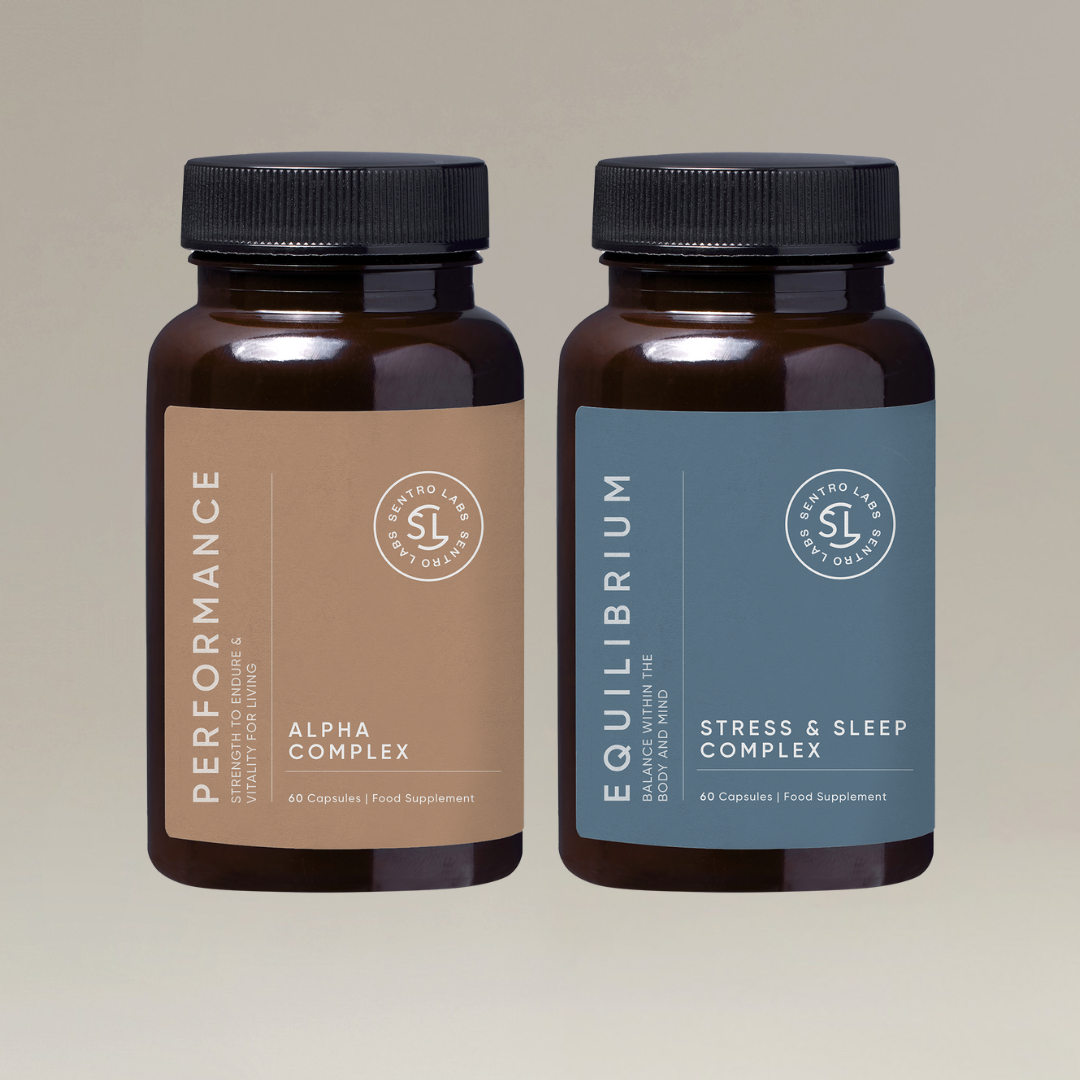
Share:
Robert's Favourite Testosterone-Boosting Quick Cardio Workout